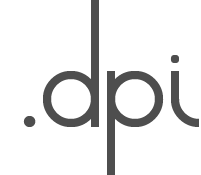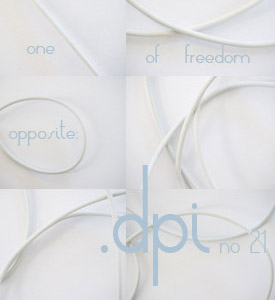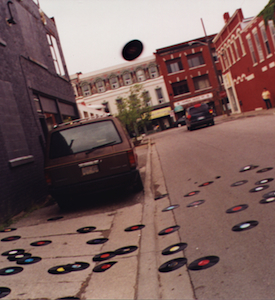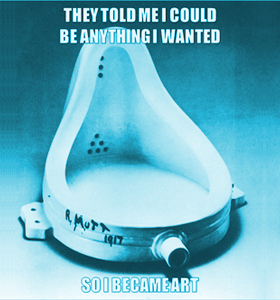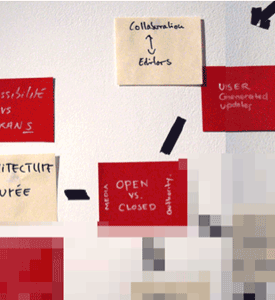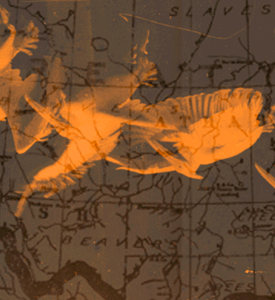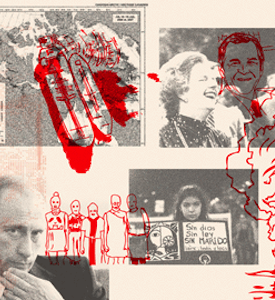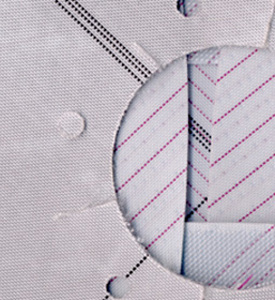Editorial
Editorial
When Sophie Le-Phat Ho invited me to join .dpi’s editorial commitee in January 2013, I had no idea that a year later I would be taking on the role of acting editor-in-chief for the three most recent editions of the journal. This new issue ends a publishing cycle spanning the period from 2004 to 2015. .dpi has evolved a great deal since it was created, and has positioned itself effectively as a platform and a cultural space that is critical and open; it has become essential to the discourse surrounding today’s feminist artists connected with the digital arts. The mandate of .dpi is to meet an existing need and to make links within a very specific community. The .dpi website continues to be an impressive resource, archiving lots of high-quality content.
Editorial
.dpi 21 is the second issue in a three-part series focusing on the theme of freedom while exploring the practices of several contemporary media artists and authors as they participate in actions for freedom.
Editorial
“...if music were not the unique exemple of what might have been-if there had not come the invention of language, the formation of words, the analysis of ideas-the means of communication between one spirit and another[1]”. Marcel Proust
Issue 31, entitled “Music and Politics”, continues the reflection I began in “Musique et politique, pratiques de femmes”, an article published in issue 27 of .dpi that was inspired by American musicologist Philip V. Bohlman and his well-known essay “Musicology as a Political Act.”
Editorial
The policing of gender online is both individual and systemic, and is of paramount concern to most Internet users. In October 2014, the Canadian Parliament passed Bill C-13: Protecting Canadians from Online Crime Act, a bill touted as a defence against cyber-bullying. In short, anyone who posts or transmits an “intimate image” of another individual without that person's consent could face up to 5 years in prison. Bill C-13 also enables greater police powers: Internet Service Providers may be forced to hand over customer information without a warrant. In Canada, in recent years, 9 telecommunications companies received approximately 1.2 million requests from federal law enforcement agencies for private customer information every year.
Editorial
It seems so easy to romanticize the past, to invent a false nostalgia of a period one has actually never experienced. Just like some teenagers today wish they had lived in the 1990s (because of its current trendiness), I sometimes regret not having lived in the revolutionary eras of the 1960s and 1970s. This is probably based on the constructed perception that “back then” being a woman seemed to almost always equal being a feminist and where women seemed to kick ass in general by coming together, resisting and being mutually supportive of each other in all areas of life.
Editorial
It’s been a while since I’ve asked myself the so-called quintessential question: “is it art?” Perhaps because I don’t think I’ve ever been emotionally attached to it. Or maybe because I’ve rarely found it to be a productive or effective question. Why ask “is it art?” That is, who is asking and to what end? For a long time now, I’ve been operating with one main definition of art, that is, art as a mode of doing-being-thinking. In other words, it’s up to the artist (or the doer-being-thinker) to decide. Extreme bottom-up, if you will. This of course coexists with other definitions, of which a powerful one is art as an institution, the more top-down definition.
Editorial
Dear Friends,
As of Spring 2013, .dpi will be taking a new shape. Restructuring and solidifying its mandate, it will be published twice a year, while building a participatory platform -- through a regularly updated blog -- that is more community-based, flexible, spontaneous, and critical.
Moreover, building on its short history, .dpi is now proudly defined as a “feminist journal of art and digital culture.”
Editorial
The first inspiration for the .dpi 25 theme Inevitable Transitions was the environment: concern for global warming and the de-regulation of industries that impact it negatively. The other main inspiration was drawn from the direct action occurring around the world in opposition to forces that bolster the political, economic, and environmental status quo. To step back and think critically about the timing of these things and what it means, evokes the feeling that we are at the threshold of great change, movement from one significant point in time to another or, an inevitable transition. The enormous groundswell of activity by individuals and movements around the world, particularly since the Arab Spring, speaks loud and clear about the issues.
Editorial
By simply invoking or imagining the future, one immediately engages in risky behaviours. Anything and everything can become risky… While risk is all around us, it is far from trivial. The only questions of importance are how, and for whom. In a world where financialization, indebtedness, tariffing, privatization, commodification, recovery, technologization of the self, surveillance, profiling, standardization, litigiousness and criminalization are processes that truly rule over our lives in the capitalist society we live in, we must urgently re-appropriate the notion of risk.
Editorial
This DPI issue sheds a new light on the relationship between fashion and technology through not only the production of materials but also the shaping of structure, the analysis of its implications and the interpretation of its end results as an interface serving as mediator between men and the urban environment in hypermodern societies.
